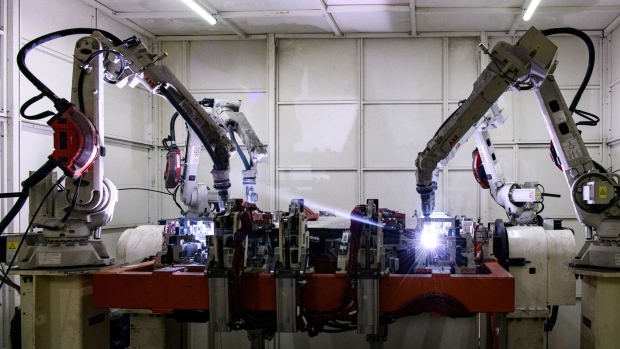Apr 16, 2024
Biden Won’t Let Unfair Trade Undercut US Clean Energy, Podesta Says
, Bloomberg News

(Bloomberg) -- The US is committed to safeguarding its investments in domestic clean energy manufacturing, even as China builds excess production capacity, White House climate adviser John Podesta said Tuesday.
Podesta’s comments at the BNEF Summit in New York build on recent warnings from Treasury Secretary Janet Yellen that Chinese over-investment and excess capacity are distorting the global economy. And they come as US solar manufacturers increasingly complain about a surge of cheap imported panels that could be the focus of a new trade complaint.
At issue are government spending under the Inflation Reduction Act and private-sector investments in green technologies such as electric vehicles, batteries and solar manufacturing.
“We need a level competitive playing field across the globe, so that everybody has a fair chance to compete” and “build the products that are necessary,” Podesta said. “We’re going to do what we need to do to protect the investments we’re making as we’re decarbonizing.”
The IRA was meant to drive investment in new technologies and spur innovation, Podesta added. “And we’re not going to let those be undercut by unfair practices.”
Read More: Swing States Net Half of $114 Billion in Inflation Reduction Act Factory Investment
The Biden administration has been considering a potential increase in tariffs on Chinese electric vehicles and other goods. It’s evaluating import taxes on more than $300 billion in Chinese goods first imposed by then-President Donald Trump more than five years ago.
Podesta on Tuesday gave the clearest signal yet that the Biden administration will take more steps to buttress domestic solar manufacturing, which is challenged by the large inventory of panels inside the US as well as other trade and policy headwinds.
President Joe Biden won’t extend a two-year reprieve on new duties for certain solar cells and modules imported from Southeast Asia, set to expire in early June, Podesta said.
Beyond that, he said, “we’re taking other measures” that will protect investment and “build up that solar manufacturing capacity” inside the US.
“We’re not going to permit the dumping of excess capacity into our markets,” he added.
Manufacturers have advanced a range of ideas, including extending existing tariffs to two-sided solar panels that can now generally be imported duty-free. They’ve also lobbied for changes in what projects are eligible for a tax credit meant to incentivize domestic content, so that it rewards US-made solar subcomponents as well as the cost of domestic labor used to make panels and other equipment. Podesta did not offer specifics.
“We’re in active discussion about what our policy options are,” Podesta told Bloomberg on the sidelines of the conference.
He cast recent decisions by Europe as a lesson for the US. The European Commission recently launched investigations of Chinese solar manufacturers, alleging they’ve benefitted from foreign subsidies.
“We just have to look at Europe and see what happened,” Podesta said. “Well, it’s not too late for us.”
©2024 Bloomberg L.P.







